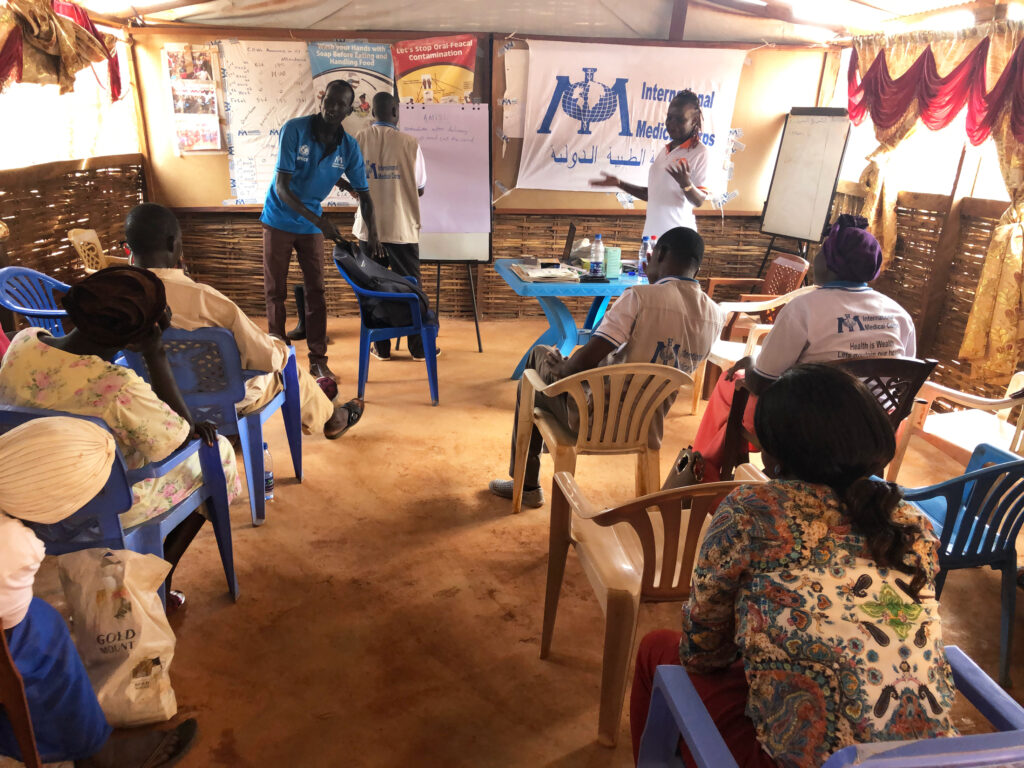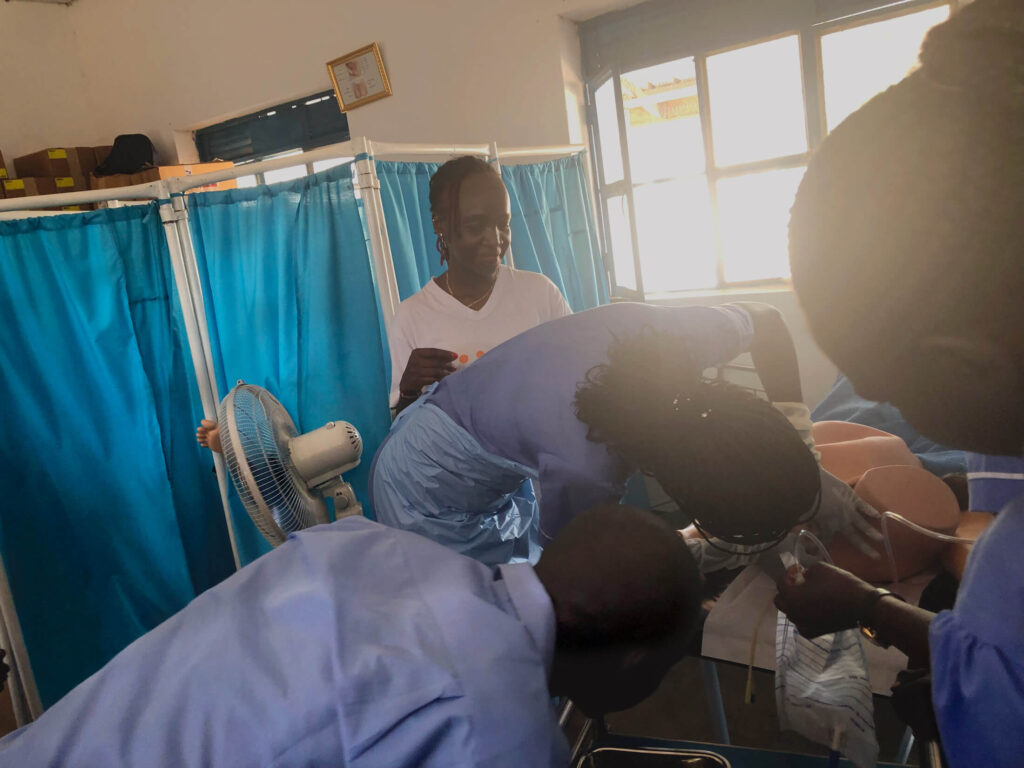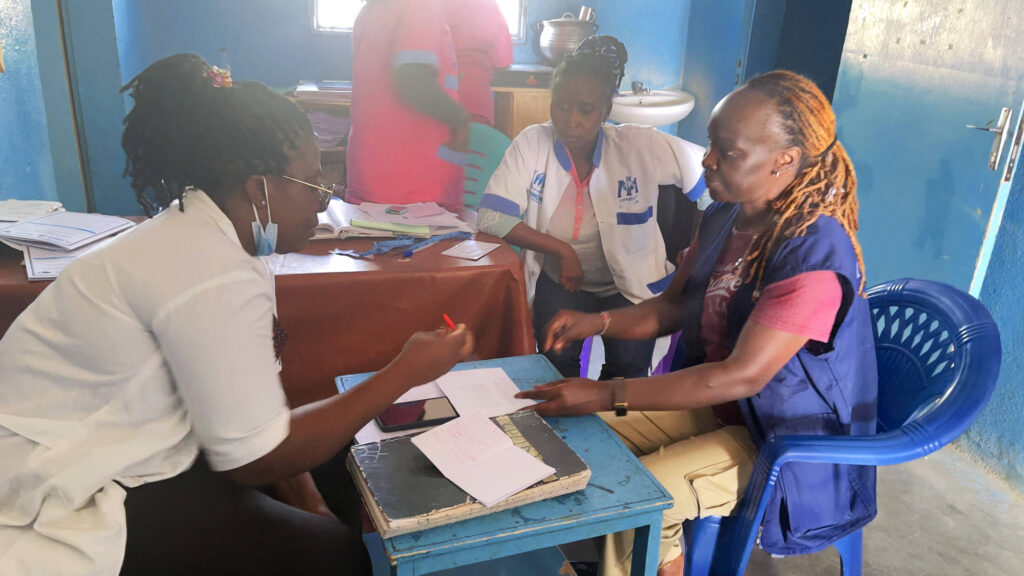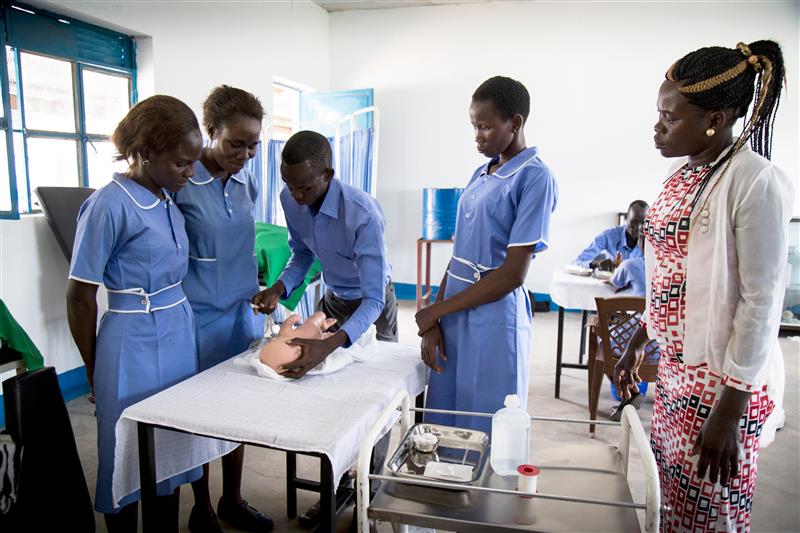Zipporah, a registered nurse-midwife for 25 years, has a master’s in public health and 15 years of experience working in the humanitarian world, in countries including Afghanistan, Bangladesh, Botswana, Eswatini, Iraq and Sudan. She initially joined International Medical Corps for six months in 2016 as a nurse-midwife specialist supporting midwives and nurses working in health facilities and providing technical support to the Ministry of Health in Wau, South Sudan. She provided supervision to health facilities, on-the-job training and mentorship sessions with teams to improve their knowledge and skills, and helped strengthen supply chains to improve maternal and newborn outcomes and quality of care.
Zipporah rejoined International Medical Corps in late 2024, this time as a Global Maternal and Newborn Health (MNH) Advisor, working with medical and program field teams in 13 of our country missions. She conducts remote training sessions to build capacity for Maternal, Newborn and Child Health (MNCH) staff members, and provides remote and in-person technical guidance on integrating MNH and the clinical management of survivors of violence during conflict into other activities—including mental health and psychosocial support, child protection and nutrition. She also has contributed to the development and adoption of the Primary Health Care Facility Quality Improvement tool, which gives field teams guidance on the minimum quality of services they’re expected to provide to beneficiaries.

Strengthening Midwifery in Conflict and Disaster
Zipporah and our MNH team strengthen the practice of midwifery in countries dealing with conflict or disaster—both of which can create additional dangers for pregnant women, children and newborns, as well as challenges for midwives. For instance, midwives may treat women with pregnancy complications and refer them to a specialist, but because of insecurity, difficult terrain or a lack of money for safe transport, these patients may not be able to travel to the facility where they are being referred.
“This, of course, causes a lot of frustration for midwives because you may end up with a mother who’s hemorrhaging or having seizures, but you don’t have sufficient supplies to provide quality care, and you have challenges in referring her to another facility,” Zipporah says. “This leads to an increase in maternal and neonatal mortality and morbidity rates within the health facilities.”
In many countries, there aren’t enough teachers who can train future midwives to the standards of the International Confederation of Midwives. In some schools, there is no regulation or oversight of midwife training at all.

With the support of our donors, International Medical Corps has been working with ministries of health in multiple countries to support midwifery training schools, in an effort to increase the number of skilled birth attendants. In South Sudan we trained about 630 midwives, and in Afghanistan, we provided training to about 4,000 health professionals.
We currently are working with the Ministry of Health in the Central African Republic (CAR) to support a school that’s training auxiliary midwives. The school will graduate its first cohort of auxiliary midwives this year. They will be deployed to work in primary healthcare clinics in rural settings, where they will be able to perform safe deliveries without any complications, and provide antenatal care, postnatal care and health education for women and girls. If they encounter women with complicated cases, they will be able to recognize the signs early and refer them to higher levels of care.
Conflict and disaster may also create interruptions in commodity supply chains, which can prevent midwives from getting the supplies and medications they need to perform safe deliveries and provide care. That’s why we work with partners and governments to advocate for stable supply chains and ensure that essential drugs and supplies that support maternal and newborn health services reach the last mile.
And because midwives need to be on the frontlines during crisis and conflict, our MNH team also involves midwives in our training sessions for health teams. We advocate for our country teams to adopt the International Confederation of Midwives’ Midwifery Model of Care to ensure that midwives are deployed within health teams to provide holistic care for pregnant women, from conception until after delivery. And we work to demonstrate to primary healthcare facilities with a strong preference for gynecologists that midwives are capable of providing holistic care to pregnant women from conception to post-delivery, and can identify any early risks of complications and refer women to higher levels of care.
“There are still a lot of challenges we face when providing MNCH services, and it’s important for us to continue to advocate for more midwife training, improved supply chains and the integration of autonomous midwives into interprofessional teams,” Zipporah says. “This will improve maternal and newborn health outcomes and maximize the use of healthcare resources—even during conflict or crisis.”

